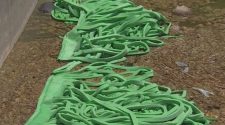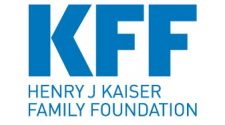To help people overcome the stigma and anxiety related to the coronavirus disease (Covid-19), the district mental health team has started counselling Covid-19 patients, their family members and at least two of their neighbouring households in urban clusters.
A team comprising a psychologist, a psychiatrist, a social worker and a community nurse visits the family of the patient who has recovered from the disease and the person who has been recently admitted a hospital.
“It’s been a week since we started visiting the affected families where Covid-19 cases have been reported. Two additional families in the neighbourhood are also being counselled. We try to cover at least four to five families in a day” said Dr Vinay Saini, psychiatrist, district health team.
“It has been seen that people often make it difficult for the members of the affected family to buy vegetables, milk and grocery items as most of them fear contracting Covid-19. Therefore, we have to make them aware of the current scenario and the interventions needed, such as social distancing and wearing of masks, instead of stigmatising a family,” he said.
Saini, along with his team, has covered 70 households till now. Currently, their focus is areas where people live in clusters. The team has so far visited containment zones, such as Sirhaul, Dundahera and Sector 18.
Dr Sachin Khatana, clinical psychologist, assisting Dr Saini, said, “In condominiums, people take extra precautions. They have the resources and the facilities to do so. But in areas where people are living in clusters, a person infected with Covid-19 is looked upon as a criminal.”
According to Khatana, the patient suffers from nervousness, which is compounded by the discriminatory attitude shown by the family members and neighbours.
Sharing an incident, Dr Khatana said that recently a woman, who was told that she had been infected with SARS-CoV-2 virus, got a severe anxiety attack. “She was shivering with anxiety. Psychological healing is not possible in a short time period. Therefore, we had to give her medicine for a week to ease her mentally.”
He said that even when a person has fully recovered, family members have difficulty adjusting with the recovered patient. “Even after the confirmatory tests before the discharge of a patient have proven negative, the family members are under fear of contracting the virus. We have to tell them to maintain social distancing for a few days to get rid of the mental blockage,” he said.
The team, along with the help of counsellors from departments such as women and child development, education and drug de-addiction centre, has earlier reached out to migrant population for help. Dr Vijay Kumar, district tuberculosis officer, who is also the nodal officer for Covid-19 mental health, said, “Earlier, more than 20 people, including counsellors from different departments, were deployed to counsel migrant workers at the shelter homes. Since a majority of the migrants has left, our team is sending limited number of members to counsel Covid-affected families.”

















